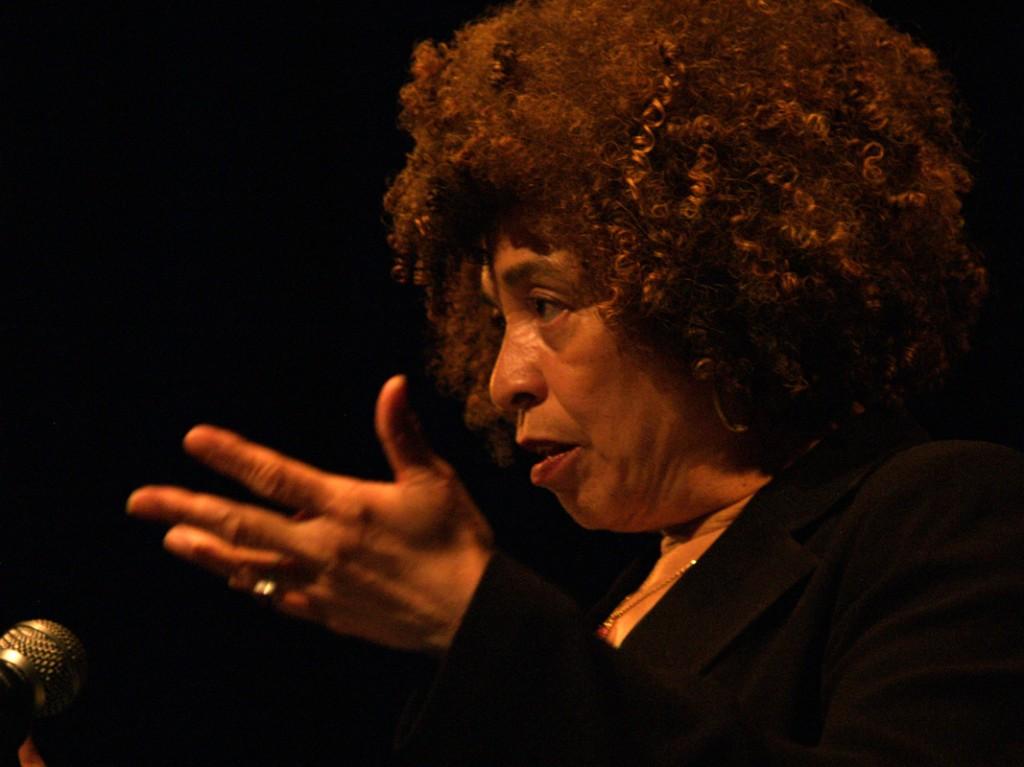Black and Feminist Shouldn’t Be Mutually Exclusive
July 23, 2011

Published: April 13, 2011
“Feminism…ewww,” my 16-year-old younger sister uttered. Her voice struck an odd pitch, her spine quivered violently and as they squeezed together, the muscles in her face resembled a raisin mutilated by the sun’s rays.
I was repulsed myself, watching her reaction to the mere mentioning of a social movement that I strongly identify with. I had just explained to her what the “Vagina Monologues” was, as she had seen my playbill lying on the coffee table. When I told her its importance to the feminist movement, she immediately dismissed the cause. We immediately started arguing and my mother even jumped in, taking my sister’s side. I tried to get my mother and sister to listen to my views about how feminists are heavily stereotyped and misunderstood. But they repeatedly talked over me, dismissing feminists as embarrassing extremists not be taken seriously. They even went as far as to tell me that I am not a feminist, insisting that it is not something I should associate myself with.
I was immensely disappointed. My mother and sister are the two strongest women I know, so I was shocked when they so harshly dismissed the feminist cause. Even more unsettling was that although they both refused to identify as feminists, they both openly said that they believed that women deserved equal rights during the argument.
Clearly, I believe that their views of feminism are skewed, but I understand where they were coming from. Rather than being a poor reflection of their intelligence, I think their claims were a telling reflection of how our society stigmatizes feminism, conflating radical feminists with all feminists. As progressive as we claim ourselves to be, people are still quick to roll their eyes at women speaking out against sexist language or submissive gender roles. Feminism is still foreign and intimidating to many of us—so intimidating that we trivialize and ridicule it to make ourselves feel comfortable.
But I think what truly explains my relatives’ disconnect from feminism is that it is generally associated as a movement for white women, and not women of color. This factor is especially true for my mother and sister, black Guyanese immigrants. The disconnect is understandable, as there is a deep history of black rights and women’s rights competing with one another for political leverage among the general public. And as the civil rights movement was pioneered by men, and feminism by white females, the rights of black women soon became an afterthought. To make matters worse for women of color, leading first-wave white feminists publicly derided blacks to bar women of color from joining their organizations. In the hope of advancing their cause, feminists distanced themselves from blacks, an already politically disadvantaged group. Shunned from the cause, generations of black women prioritized black issues such as racial discrimination and police brutality over gender inequality and violence again women.
But despite this racist history, we are in the age of third-wave feminism, an age in which feminism no longer limits itself to the issues of middle-aged, upper-class white females. Instead, today’s feminist movement is focused on incorporating the rights of all women, regardless of their racial or ethnic background, sexual preference, class or age.
Furthermore, women of color should not let their concern for black rights distract or discourage them from identifying with feminism, as the issues it addresses significantly affects them. In fact, issues of rape and domestic violence disproportionately affect black women at much larger rates than women of other racial backgrounds. A study from the U.S. Department of Justice shows that black females suffer from violence from intimate partners at a 35 percent rate higher than white females, and that they experience rape, various types of assault, robbery, and even murder at approximately 22 times the rate of women of other races. And according to a study at Tufts University, the leading killer of African-American women ages 15-34 is homicide at the hands of current or former intimate partners. In all of this violence, only 17 percent of assaults are reported to officials. These statistics speak volumes and demonstrate that it is imperative that women of color take the feminist cause more seriously, as it is literally killing them not to do so.
It was perfectly fitting that it was the “Vagina Monologues” that sparked the dispute I had with my mother and sister, as it was seeing it on campus as a freshman that made me become more conscious of women’s issues, led me to my identity as a feminist and inspired the argument I am making today. If women of color are going to stop sexual violence and discrimination to gain the rights they deserve, they should engage in the feminist cause and be unafraid in openly identifying with it, despite our society’s attitude towards it. Yes, there is a well-known history of racism within the feminist movement, but blacks have repeatedly surpassed racism in other social movements and political institutions to advance their political agenda. And for all of the complaints we make about the degradation of women in rap music, what are we doing as a community to fight it? It is a large conflict, but in engaging in feminism, we can at least mitigate it. Sojourner Truth, Ida Wells-Barnett, Lorraine Hansberry, Coretta Scott King, Audre Lorde and Rebecca Walker have already made a path. We just need to march in it.









